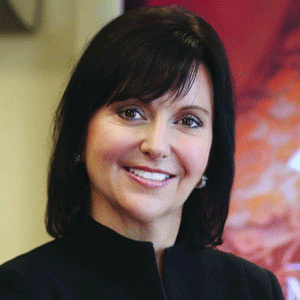THANK YOU FOR SUBSCRIBING

How Cloud Technology has Leveled the Playing Field for Hoteliers
David Chestler, EVP Global Enterprise Sales and Business Developme, SiteMinder


David Chestler, EVP Global Enterprise Sales and Business Developme, SiteMinder
For more than 25 years, hospitality technology has been both a passion and a career for me. I have seen it evolve from the days when sales were driven almost entirely by phones, to the present day where you can book a hotel from your phone while having breakfast. In some ways, you could say we have come full circle! Of course, the phone today is so much more than it was 25 years ago but it continues to signify one thing: information, albeit more of it.
For hotels, in particular, it has become more important than ever to put the right information in front of the global traveler– and to make themselves (and their destination) more accessible, at any time and from anywhere.
From the streets to the global stage
Even before my career began, independent hoteliers were heavily constrained by the limited options available to reach guests. At most, they might’ve had a big sign outside of their hotel and placed an ad in the Yellow Pages, or they might’ve been out on the street handing out brochures when they weren’t busy making calls. Ultimately, their success depended as much on their ties with an established chain as it did on the quality of the rooms they offered, or their location.
Now, the Internet economy serves as a continuous invitation for guests, regardless of a hotel’s size or location–or the location of the guest, in fact, as the total number of online travel bookings is now upwards of 148 million each year.
And the playing field has been leveled–by technology. Specifically, cloud technology: the internet-based tools that allow all hotels, from the smallest independents to the largest chains, to compete globally. The cloud allows hotels to be where travelers are, starting from the instant those travelers search, research and comparison-shop, in the cloud and usually on multiple screens.
Low, predictable costs: the new disruption
Fundamentally, the cloud has democratized best-of-breed technology so that capabilities previously accessible only to the largest hotel chains are now accessible to all hotels, no matter their size. A small independent hotel can today be using the same cloud technology as the world’s largest chains, and have an equal opportunity to manage the increasing complexities of online travel bookings. In truth, it’s not uncommon for the large hotel chains to remain heavily invested in on-premise legacy technology and consequently struggle to keep up with the pace of innovation delivered via the cloud.
But the true disruption? The low, predictable costs that come with a business model that is typically subscription-based.
Without the need to address the challenges presented by legacy software, true cloud-based technology providers can offer a pay-as-you-go model, which means zero commissions to that technology provider and therefore a boost to a hotel’s || May 2015 5 6
bottom line. This means that hotel can put that money to other uses, and one of the best uses would be connections to more booking sites, meta-search engines and GDSs–so they can find travelers and be found. Hoteliers today have so many channels to choose from in order to strategically target feeder markets using curated portfolios, tour operators and wholesalers.
As a case in point, many independent hotels cannot travel to emerging markets, themselves, to develop their own source of bookings, but relying on a local OTA or tour operator can help them find travelers through existing relationships and ultimately drive those travelers to find their product with special offers and partner-driven merchandising.
There are ways for independent hotels to attract the same travelers the global chains are seeking, including from the BRIC nations and other emerging markets. And it starts with the cloud.
Hotels in the US especially benefit from the unrealized potential of using cloud technology as the GDS has, to date, been the single enabler within that market to reach travellers en masse. While channel managers, for example, are not new to the travel & hospitality industry–remember when they were called ‘integrators’ or ‘middleware’?–too few hotels are educated on the unique ability for best-of-breed channel managers to place a highly-fragmented, multi-channel world within reach, and at a fraction of the distribution cost to using a GDS.
Additionally, best-of-breed channel managers enable hotels to see the granularity of global travel for themselves–including their markets, channels and their partners–and manage it efficiently so they can enhance their revenue streams. By taking advantage of these cloud-based technologies, which should come with complete automation, hotels are in a position to not only benefit from significantly-lower costs and greater visibility to global markets, but from greater control.
And then there’s speed, flexibility and scalability
Through the cloud, hotels are equipped with one architecture that is powerful today but also equally prepared for inevitable change.
It’s no secret that the industry we’re in is comprised of many disparate booking solutions. But with the cloud, hotels can benefit from an always-accessible platform that houses best-of-breed systems–including the hotel’s property management system, central reservation system, revenue management system, reputation management and rate recommendation tools, data insight platform (BI), channel manager and booking engine, to name but a few.
Unconstrained by neither the physical hardware nor software that comes with on-premise technology, hotels can have all of these systems up and running within days, sometimes hours. The choice is theirs, because of the cloud’s flexible nature and its ability to scale–up or down.
And because the applications and data are stored in the cloud, hoteliers receive automatic upgrades of their systems– from new features and performance enhancements, to security through PCI DSS–allowing them to benefit from an increased pace of innovation and data protection.
"Cloud has democratized best-of-breed technology making capabilities available to all sized hotels"
There are several other ways cloud technology has leveled the playing field for hoteliers, such as lower risk of significant business interruption and minimized staff training and maintenance. But the important thing is hotels get on it.
Cisco has forecast that cloud applications will account for 90 percent of global mobile data traffic by 2018 and this shouldn’t be too startling when considering that cloud applications accounted for 82 percent of total mobile data traffic at the end of 2013–a fact often overlooked by those who forget that their use of the Internet already puts them in the cloud: the new, ubiquitous ecosystem where travelers are and where hotels therefore need to be.
Check Out:- Top Cloud Consulting/Services Companies Check Out:- Top Cloud Technology Solution CompaniesWeekly Brief
I agree We use cookies on this website to enhance your user experience. By clicking any link on this page you are giving your consent for us to set cookies. More info
Read Also
Navigating Compliance Challenges in ESG AML and Digital Onboarding
A Vision for the Future: Automation, Robotics, and the Smart Factory
The Rise of Hyper Automation
Transforming Business Operations with Robotic Process Automation
Combining Automation with AI to Achieve Human-Like Interaction
Implementing RPA - 5 Ultimate Prerequisite
Incorporating the power of recognition into our vendors' sustainability journey
Elevating Guest Experience with Data




















